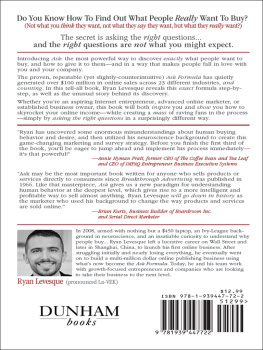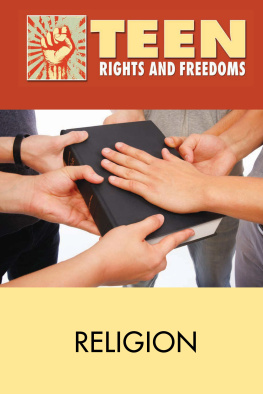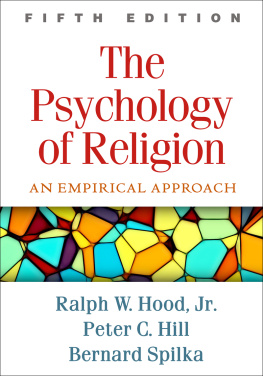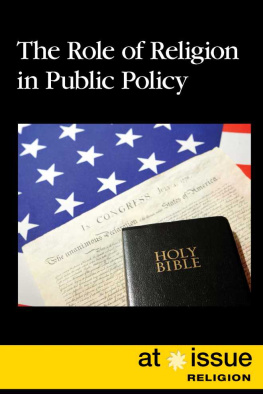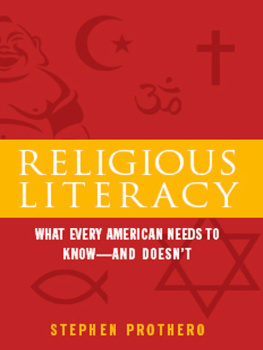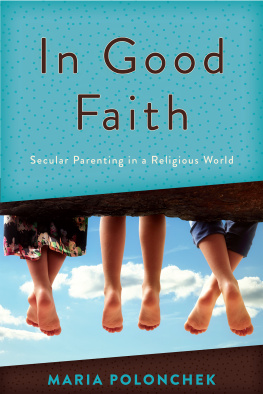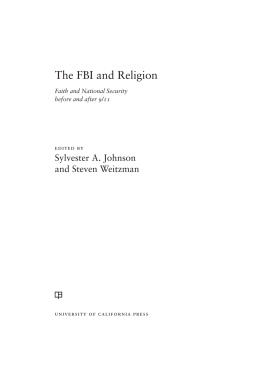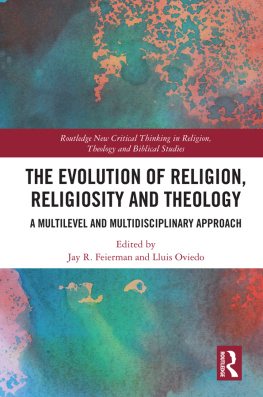Thank you for buying this ebook, published by NYU Press.
Sign up for our e-newsletters to receive information about forthcoming books, special discounts, and more!
Sign Up!
About NYU Press
A publisher of original scholarship since its founding in 1916, New York University Press Produces more than 100 new books each year, with a backlist of 3,000 titles in print. Working across the humanities and social sciences, NYU Press has award-winning lists in sociology, law, cultural and American studies, religion, American history, anthropology, politics, criminology, media and communication, literary studies, and psychology.
Not by Faith Alone
Not by Faith Alone
Religion, Law, and Adolescence
Roger J. R. Levesque

NEW YORK UNIVERSITY PRESS
New York and London
2002 by New York University
All rights reserved.
Library of Congress Cataloging-in-Publication Data
Levesque, Roger J. R.
Not by faith alone: religion, law, and adolescence /
Roger J. R. Levesue.
p. cm.
Includes bibliographical references (p.) and index.
ISBN 0-8147-5182-2
1. Freedom of religionUnited States. 2. TeenagersCivil rights
United States. 3. Childrens rightsUnited States. 4. Teenagers
Religious lifeUnited States. I. Title.
KF4783 .L476 2002
342.730852dc21 2002009290
New York University Press books are printed on acid-free paper,
and their binding materials are chosen for strength and durability.
Manufactured in the United States of America
10 9 8 7 6 5 4 3 2 1
For Bruce D. Sales
Contents
Acknowledgments
Editors at New York University Press obviously have done much to shepherd the development of this text. I am, though, especially grateful for Jennifer Hammers careful editing and suggestions for revisions. I also am very appreciative of the manner in which she swiftly responded to my initial book proposal and found reviewers who provided insightful comments and wise counsel. I was very pleased to see that all took the manuscript on its own terms and helped develop the arguments I had proposed, rather than asking that I write a book that addressed issues that, although important, were not central to what I was trying to do: examine our understanding of the role of religion in adolescent development and fashion appropriate legal responses that respect adolescents and broader societal (including religious) concerns.
The Psychology, Policy, and Law Program at the University of Arizona also deserves special acknowledgment. The intellectual environment fostered by Bruce Sales has done much to free me, in terms of both time and spirit, to write this text. Engaging students in the psychology program and in the law school, most particularly Tracey Geer, Cordelia Guggenheim, Scotia Hicks, Shannon Locke, and Sean Sullivan, have made teaching so rewarding and appropriately challenging that I found it easy to share and develop many of the ideas presented in this text, even though what we discussed related less to religious issues than to the legal systems role in each of our lives.
My family also deserves special acknowledgment. Helen, my wife and my constant source of support and inspiration, deserves much more than I can ever offer. Although I can never praise her enough, I find great comfort in knowing that she knows and warms my deepest sentiments and that her place in my life makes me a much better person (and scholar) than I ever could have hoped. Our three sons, Thomas, Henry, and Marc, all remind me of the best reasons we have been placed on Earth and why the issues I address in this text are of such significance. My parents, Marc and Isabelle, have been such a powerful force in my life that it renders me speechless when I think of how much I owe them for having helped instill in me respect for religious and spiritual concerns. My brother Yves and my sister, Linda, remain powerful role models as they remind me of the importance of moving beyond ones individual concerns, reaching out to others, and finding ones place in a changing world. Last, my brother Gilles, who died unexpectedly and tragically as I was starting this project, undoubtedly served as a deep source of inspiration and as a reminder of the need to cherish life and to embrace its mysteries.
PART I
Introduction
1
Religion and Adolescents in Changing Times
Adolescents exhibit strikingly high levels of religious beliefs, attitudes, and behaviors. Ninety-seven percent of American teens ages 13 to 17 believe in God (or a universal spirit), 76 percent believe that God observes their actions and rewards or punishes them, 93 percent believe that God loves them, 91 percent believe in heaven, and 76 percent believe in hell (Gallup, 1999). In addition to having spiritual concerns, 80 percent of American teenagers view religion as at least fairly important to them; 93 percent report being affiliated with a religious group or denomination, and more than half of adolescents surveyed regularly engage in religious practices, such as praying alone, attending church or synagogue, frequently reading scriptures, or being involved with religiously affiliated youth groups. Surprisingly, more than one in four teens considers spiritual life to be more important to the teen than it is to his or her parents, indicating that teens are slightly more likely to attend church or synagogue than adults. Equally intriguing, more than three-quarters of adolescents feel confident that they will be more religious than their parents.
Adolescents religious beliefs, development, and environments clearly are important to them. Yet, the law does not know how to approach adolescents religious rights and needs. The law often ignores the many intricacies of this transitional developmental period as it typically classifies adolescents either as children or as adults. In some contexts, the law finds the religious concerns of adolescents indistinguishable from those of young children, which allows it to subject them to paternalistic policies based on assumptions of dependence, vulnerability, incompetence, inexperience, and immaturity. In other contexts, it treats adolescents religious concerns as it treats those of fully mature adults, assuming that teens are competent to make decisions, accountable for their choices, and entitled to no special accommodations. Sometimes, the law essentially remains silent and leaves open to speculation the assumptions and conceptions about adolescents that it uses to determine the nature of the legal rules that affect their religious concerns. In these contexts, great discretion is left to lower courts and to those who implement laws, such as law enforcement officers, school personnel, and social service providers. And, in still other instances, adolescents rights, abilities, and vulnerabilities do not even factor into the resolution of religious disputes, even when the disputes clearly involve adolescents. These wide disparities regrettably have not spurred the legal system and legal commentators to confront the awkward task of fashioning a more unified, carefully crafted approach to adolescents religious rights.
The laws attempt to tailor itself to adolescents needs and to affirmatively foster their development toward positive outcomes has been characterized by a lack of sustained, systematic efforts to address these inconsistencies and polarized tendencies (c.f. Levesque, 2000a, 2002). The challenges that arise in the context of adolescents religious rights are distinctive, especially in light of the glaring clashes between historical and modern perceptions of religion and the place adolescents occupy in those perceptions. The social sciences, and especially the psychological sciences, historically have taken a highly negative view of religion and its influence on individual development (Donelson, 1999; Breakey, 2001). Likewise, the historical relationship between law and religion also has not been entirely positive. As many have argued, religions typically have resisted the development of important human rights, such as freedom of belief and protection from discrimination (see Gustafson & Juviler, 1999), and historically have fostered massive human rights violations (see Appleby, 2000). Yet, social science research, even within psychology, is now beginning to focus on the positive role that religious beliefs and institutions can play in fostering healthy individual and social outcomes (see Plante & Sherman, 2001; Koenig, McCullough, & Larson, 2001). Likewise, legal systems in the United States and in many other nations have enshrined rights that generously offer protections for liberty of conscience and freedom of religious exercise, for guarantees of religious pluralism, equality, and nondiscrimination, and for other entitlements owed to religious individuals and even religious communities (see Lerner, 2000; Witte, 2001). Yet, even though these laws recognize that religious rights belong to every individual and every group, how and whether adolescents can enjoy the protections, guarantees, and entitlements now seen as fundamental human rights possessed by all remains one of the greatest mysteries and challenges of the new millennium. Moreover, the recent focus on religions positive influences and on new policies to protect and foster religious convictions pervasively ignore the ways in which religious beliefs, practices, and groups may in fact not always be good for adolescents
Next page

